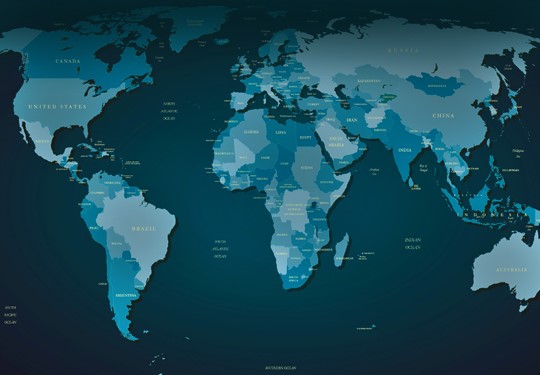The United Nations University (UNU) was tasked with building a Global Online Knowledge Platform to support efforts to end forced labor, modern slavery, human trafficking, and child labor by 2030, as defined in Target 8.7 of the UN Sustainable Development Goals. The initiative was funded by several organizations, including the United Nations Development Program (UNDP).
The UNU’s Knowledge Platform aims to rapidly collect global scientific knowledge and evidence focused on modern slavery risk and vulnerability factors, and the effectiveness of different prevention and response interventions. It is also intended to facilitate global uptake of the resulting insights by policymakers, business, and other practitioners.
The design criteria for the Knowledge Platform focused on providing data and information to policy-level actors, including data visualization and summarized research findings on key topics, as well as fostering an improved knowledge base and collaboration between researchers. Priority was given to robust search functionality, mobile device access, and the ability to share content easily and to work in areas with unreliable connectivity.
The main contractor for the project was Quoin LLC. Iknow’s role, working as a subcontractor to Quoin, was to design and implement the taxonomy for the new Knowledge Platform.
Iknow’s approach to the taxonomy development effort consisted of the following three phases.
1. Defining the Objectives. Iknow clearly defined the objectives and search use cases for the new taxonomy. The UNU taxonomy was intended to support:
- Thematic area pages
- Search refiners (faceted browsing of search results)
- Links to other relevant content from each page
- Interfacing to other sites and data repositories dealing with humanitarian issues (using standard taxonomies to facilitate this, such as the HXL term set).
The taxonomy also needed to support longer-term content management. As the number of site items (e.g., blog posts, datasets, articles, etc.) increases in the future, UNU needs to be able to review the accumulated content by topic area to ensure it is highlighting the most important content and archiving anything that’s outdated.
2. Developing the Taxonomy. Iknow identified the taxonomy terms and created the new taxonomy. As with other taxonomy development projects, Iknow focused on key usage questions in order to develop the best set of terms. Specific usage questions included:
- How does UNU expect users to search and browse the content? What are the main concepts they will search for?
- How does UNU organize content internally? (e.g., Are folders set up for specific topics or other categories?)
- How do related organizations categorize content in these topic areas (especially if UNU may want to share data or documents with them)?
Iknow held a series of meetings with UNU project leaders to answer these questions and to jointly develop a taxonomy that was as simple and concise as possible, while allowing effective search refinement, browsing, and information exchange.
This work resulted in a five-facet taxonomy structure, with up to three levels of hierarchy for the terms in each facet. The five taxonomy branches were:
- Policy areas, e.g., migration and displacement
- Types of exploitation, e.g., modern slavery
- Regions/countries, focusing on countries that are active in the UN’s 8.7 initiatives
- Organizations (UN and other agencies that do field operational work and other organizations that are data sources or contributors to the site)
- Industry sectors, focusing on those where exploitation is most serious, e.g., mining.
3. Implementation. After approval of the draft taxonomy, Iknow translated the term set into a structured XML file, which was used in the technology platform.
Iknow’s work was well received by the client and main contractor, and full implementation of the Knowledge Platform is now in progress.


